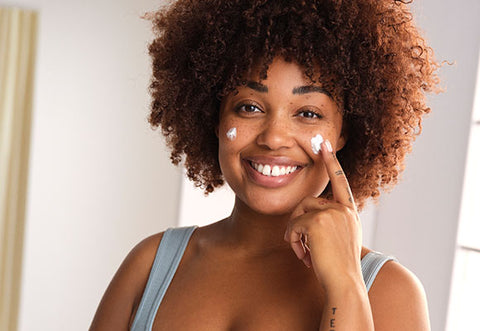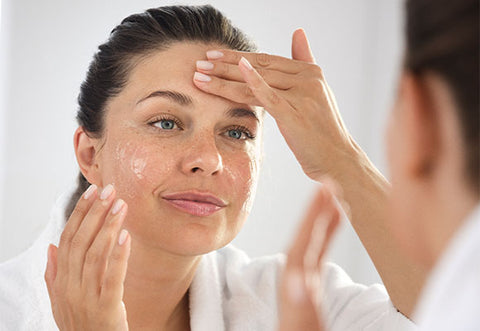Not only can acne-prone skin be uncomfortable to have, but it can also impact how we look and feel about ourselves. Acne is a common condition that affects roughly 85% of people aged 12 to 24 every year.
In this article, we take a look at how to maintain acne-prone skin both in wintry conditions and hot summer months.
What is acne-prone skin?
According to the British Skin Foundation, acne is caused by the cutibacterium acnes bacteria that usually lives harmlessly on human skin. This bacteria can build up on the skin of acne sufferers as their skin is prone to producing too much oil.
With the build-up of this bacteria, the skin can become inflamed, producing red skin and spots that are often associated with acne.
Acne can affect anyone at any age, although it is more common in younger people. Acne is common in teenagers, but thankfully, it usually clears up by the time people reach their mid-twenties.
There may be a genetic link between those who develop acne, but this is not always the case. Acne can affect any age and can even impact any part of the body, not just the face.
There is some research to suggest that an increase in hormone levels can promote acne-causing sebum production, as can some medication, but it's important to remember that acne can appear at any age.


Skincare for acne-prone skin
The spots caused by acne can mean you may need to clean your face carefully and regularly to limit the spread of the spot-causing bacteria that are released when they burst.
Just like any other skin type, we’d recommend washing your face in both the morning and evening. Washing your face more regularly than this can cause your skin to dry out too much, which can result in it becoming itchy and uncomfortable.
The best cleansers for acne-prone skin will usually contain some form of a mild acid to help exfoliate the outer layers of skin. The Clearskin Blemish Clearing Fresh Bubble Cleanser contains an effective 2% salicylic acid which can work a dream to help keep spot-causing bacteria at bay.
Like other skin types, following up with a toner can work wonders for acne-prone skin. The Clearskin Blackhead Clearing Face Toner helps unclog pores, limiting the chances for more spots to form.


Which moisturiser is best for acne-prone skin?
Cleansing, toning and moisturising your skin is a must, even with acne-prone skin. Acne-prone skin tends to dry out after cleansing and toning as some chemicals used in these products can be quite harsh.
To balance this and help your skin retain a healthy moisture level, always follow up your cleansing routine with a moisturiser for acne-prone skin. Why not try the Clearskin Green Tea Overnight Cream? It helps soothe and moisturise sore, acne-prone skin while helping to prevent breakouts.
Wearing SPF for acne-prone skin is another essential element to your daily skincare routine. Regardless of the weather and time of year, applying SPF every day is vital to help protect your face from the sun’s harmful rays, even in winter.
Often, acne prone-skin is also sensitive, and as a result, it's essential to help shield it from potential sunburn, which can dry it out and irritate your skin. You might consider wearing a light BB cream with SPF 15 or higher, such as the Nutra Effects Radiance BB Cream.


Make-up for acne-prone skin
Tinted moisturiser for acne-prone skin in the UK can offer a happy medium. It can help moisturise your skin for a healthy glow without the need to apply a thick layer of concealer or foundation, which might lead to clogging your pores even further.
Foundation for acne-prone skin is not always a good idea. Instead, you could consider using something lighter such as a Clearskin Blemish Clearing Spot Conceal Stick. This clever tool works to conceal blemishes and pimples and helps fight spot-causing bacteria.
If your skin is particularly prone to appear oily, you could pair this concealer with a lightweight product like the Nutra Effects Matte BB Cream to help mattify the skin, even on hot summer days.
RELATED: What vitamins are good for acne-prone skin?
Now that you have some ideas of how to tackle your acne-prone skin, you might be interested in dressing your skin up with some of the most recent makeup trends. Read about these and more on the Avon Loves blog.